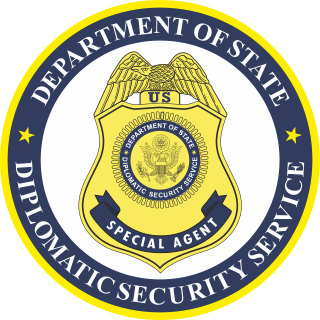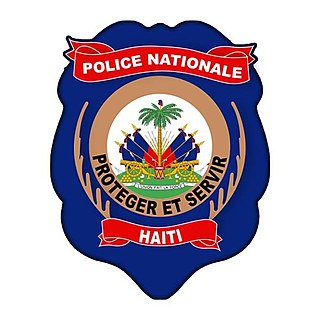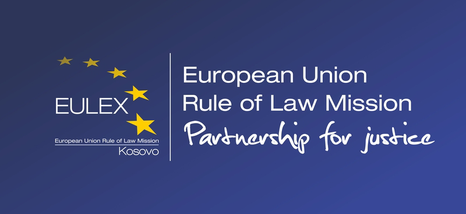Related Research Articles
The National Institute of Justice (NIJ) is the research, development and evaluation agency of the United States Department of Justice. NIJ, along with the Bureau of Justice Statistics (BJS), Bureau of Justice Assistance (BJA), Office of Juvenile Justice and Delinquency Prevention (OJJDP), Office for Victims of Crime (OVC), and other program offices, comprise the Office of Justice Programs (OJP) branch of the Department of Justice.

The Bureau of Alcohol, Tobacco, Firearms, and Explosives (ATF), also referred to as BATFE, is a domestic law enforcement agency within the United States Department of Justice. Its responsibilities include the investigation and prevention of federal offenses involving the unlawful use, manufacture, and possession of firearms and explosives; acts of arson and bombings; and illegal trafficking and tax evasion of alcohol and tobacco products. The ATF also regulates via licensing the sale, possession, and transportation of firearms, ammunition, and explosives in interstate commerce. Many of the ATF's activities are carried out in conjunction with task forces made up of state and local law enforcement officers, such as Project Safe Neighborhoods. The ATF operates a unique fire research laboratory in Beltsville, Maryland, where full-scale mock-ups of criminal arson can be reconstructed. The agency is led by Marvin Richardson, Acting Director. Richardson previously served as the Associate Deputy Director and Chief Operating Officer, the second highest ranking official at ATF, from October 2019 to June 2021. The ATF has 5,101 employees and an annual budget of $1.274 billion (2019).

The Bureau of Diplomatic Security, commonly known as Diplomatic Security (DS), is the security branch of the United States Department of State. It conducts international investigations, threat analysis, cyber security, counterterrorism, and protection of people, property, and information. Its mission is to provide a safe and secure environment for officials to carry out U.S. foreign policy.

The Diplomatic Security Service is a security and law enforcement agency that acts as the operational division of the Bureau of Diplomatic Security, which is a branch of the United States Department of State. Its primary mission is to protect diplomatic assets, personnel and information, as well as combat visa and passport fraud. The agency also undertakes counterterrorism, counterintelligence, cybersecurity and criminal investigations, both domestically and abroad.

The Bureau of International Narcotics and Law Enforcement Affairs (INL) is an agency that reports to the Under Secretary for Civilian Security, Democracy, and Human Rights within the Department of State. Under the umbrella of its general mission of developing policies and programs to combat international narcotics and crime, INL plays an important role in the training of partner nation security forces.

The National Crime Records Bureau, abbreviated to NCRB, is an Indian government agency responsible for collecting and analyzing crime data as defined by the Indian Penal Code (IPC) and Special and Local Laws (SLL). NCRB is headquartered in New Delhi and is part of the Ministry of Home Affairs (MHA), Government of India. The current Director of National Crime Record Bureau is Ramphal Pawar (IPS).

Transnational organized crime (TOC) is organized crime coordinated across national borders, involving groups or markets of individuals working in more than one country to plan and execute illegal business ventures. In order to achieve their goals, these criminal groups use systematic violence and corruption. Common transnational organized crimes include conveying drugs, conveying arms, trafficking for sex, toxic waste disposal, materials theft and poaching.

The Haitian National Police ), is the law enforcement and de facto police force of Haiti. It was created in 1995 to bring public security under civilian control as mandated in Haiti's constitution. More than 8,500 police officers have completed training in modern law enforcement.

The Korps landelijke politiediensten was the national police force in the Netherlands from 1993 until 2013, responsible for specialist missions that benefited from a centralized approach.
Law enforcement in Albania is the responsibility of several agencies. The responsibility for most tasks lies with the Albanian State Police, a national police agency, which is under the authority of Ministry of Internal Affairs. Examples of other agencies with limited policing powers are the Municipal Police, which has administrative functions and operates in the local level. They are controlled by mayors.

The Somali Police Force is the national police force and the main civil law enforcement agency of Somalia. As with most other police forces in the world, its duties include crime fighting, traffic control, maintaining public safety, and counter-terrorism. It is under the jurisdiction of the Minister of Public Security.

In many countries, particularly those with a federal system of government, there may be several law enforcement agencies, police or police-like organizations, each serving different levels of government and enforcing different subsets of the applicable law.

The European Union Rule of Law Mission in Kosovo, known as EULEX Kosovo or simply as EULEX, is the largest civilian mission ever launched under the Common Security and Defence Policy (CSDP) of the European Union. EULEX supports selected Kosovo rule of law institutions on their path towards increased effectiveness, sustainability, multi-ethnicity and accountability, free from political interference and in full compliance with international human rights standards and best European practices through monitoring activities and limited executive functions with the aim of handing over remaining tasks to other long-term EU instruments and phasing out residual executive functions. The Mission's mandate covered the period until 14 June 2020 based on Council Decision CFSP 2018/856 and has been extended to 14 June 2021 by Council Decision CFSP 2020/792. EULEX works within the framework of UN Security Council Resolution 1244.
This article deals with the activities of the Central Intelligence Agency (CIA) of the federal government of the United States that are violations of human rights.

The United States and North Macedonia enjoy excellent bilateral relations.

The Civilian Response Corps is a program of the United States Department of State, Office of the Coordinator for Reconstruction and Stabilization (S/CRS). The Civilian Response Corps is currently a group of federal employees and volunteers from the private sector, state and local governments who are trained to deploy rapidly in countries that are in crisis or emerging from conflict in order to provide reconstruction and stabilization assistance. They are diplomats, development specialists, public health officials, law enforcement, corrections officers, engineers, economists, lawyers, public administrators, agronomists and others – offering the full range of skills needed to help fragile states in order to restore the stability and rule of law to achieve economic recovery and sustainable growth as quickly as possible.

The Florida Department of Law Enforcement (FDLE) is a state-wide investigative law enforcement agency within the state of Florida. The department formally coordinates eight boards, councils, and commissions. FDLE's duties, responsibilities and procedures are mandated through Chapter 943, Florida Statutes, and Chapter 11, Florida Administrative Code. FDLE is headed by a commissioner who reports to the Florida Cabinet, which is composed of the governor, the attorney general, the chief financial officer and the commissioner of agriculture. The commissioner is appointed to his position by the governor and cabinet and confirmed by the Florida Senate.

European Union Advisory Mission Ukraine is a civilian Common Security & Defence Policy (CSDP) mission of the European Union. It aims to assist Ukrainian authorities to reform civilian security sector. It provides strategic advice and practical support to make Ukrainian civilian security sector more effective, efficient, transparent and enjoying public trust. EUAM Ukraine works with a number of law enforcement and rule of law institutions of Ukraine and it formally began operation on December 1, 2014, following Ukrainian Government's request.
The Policía Nacional Civil (Guatemala) is the police force of Guatemala and is an agency of the Guatemalan Ministry of the Interior. The PNC is in charge of protecting public order.
References
- ↑ "U.S. Security", Congressional Record: S2874 [Senate], 5 March 1992
- 1 2 Call, Charles T. "9: Institutional Learning within ICITAP". In Robert B. Oakley; Michael J. Dziedzic; Eliot M. Goldberg (eds.). Policing the New World Disorder: Peace Operations and Public Security. National Defense University. Archived from the original on 2008-04-16. Retrieved 2009-12-07.
- 1 2 3 GAO1992-03-05, "NATIONAL POLICE FORCE DEVELOPMENT" section
- ↑ Operations - Office of the Inspector General (OIG), Department of Justice, Special Inquiries
- ↑ Kelly, Michael J. "11: Legitimacy and the Public Security Function". In Robert B. Oakley; Michael J. Dziedzic; Eliot M. Goldberg (eds.). Policing the New World Disorder: Peace Operations and Public Security. National Defense University. Archived from the original on 2008-04-16. Retrieved 2009-12-07.